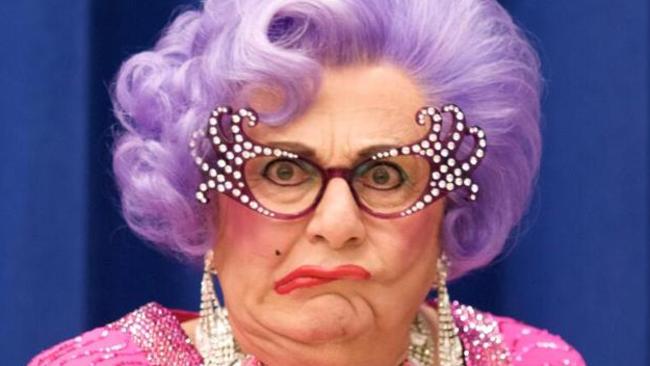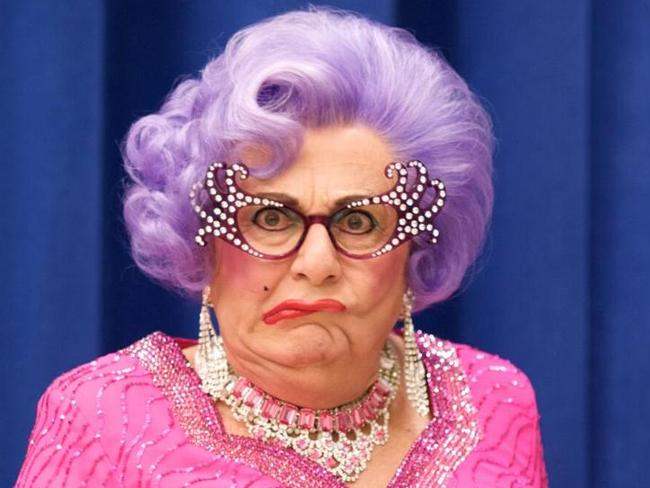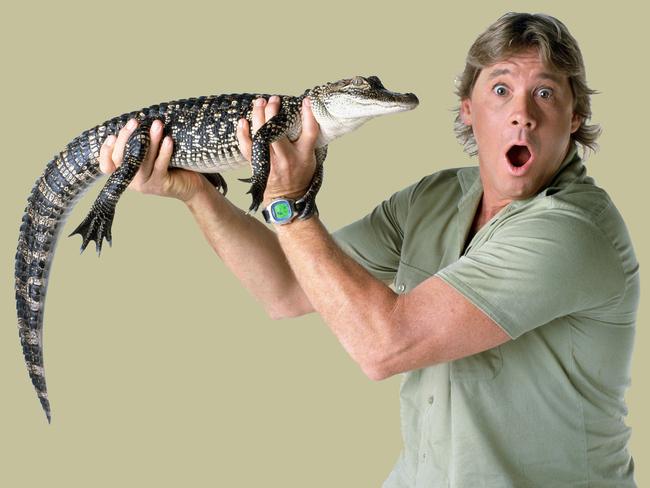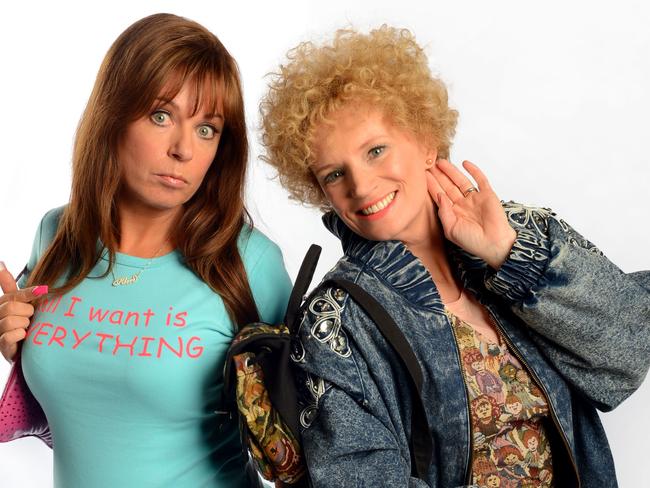Linguists Tony Thorne and John Hajek say Australian slang is not what it used to be
THIS will make you as mad as a cut snake. Experts say as Australia becomes more global, successful and cosmopolitan, our unique expressions are dying off.

Lifestyle
Don't miss out on the headlines from Lifestyle. Followed categories will be added to My News.
THIS is something all Aussies should be as mad as a cut snake about.
Experts say as Australia becomes more global, successful and cosmopolitan, the country is losing its unique expressions, creating fewer new ones and borrowing more from overseas.
Now, linguistics is a topic most of us would consider as dry as a dead dingo’s donger, but our slang is intrinsically tied to our Australian identity (ie. it’s what makes us true blue).
As the BBC reports, linguist Tony Thorne from London’s Kings College says Aussie lingo is going the way of the Tasmanian tiger.

“The kind of Australian culture, very macho, very classless, that kind of ocker culture based around drinking, is just out of date,” he told the BBC.
Australian slang had its heyday in the 1960s and 70s — where the international Bush Telegraph made our turns of phrase famous the world over — but much of that innovation has dried up.
Mr Thorne said there were only three new Australian slang terms in the latest edition of his slang dictionary — the fewest ever.
“Australia has become a powerhouse in the financial and service sectors. Australians now when they go abroad, they’re not barmen and backpackers. They’re working in the corporate sector,” he told the BBC.

RELATED: 42 surprising facts about Australia according to McCrindle Research and ABS
“The language of the corporate sector is business-speak, jargon and buzzwords. Australians have embraced that. ‘Utilise’, ‘corporatise, ‘maximise’. The old language is past its sell-by date.”
University of Melbourne Professor of Language John Hajek blamed the yanks for the death of Aussie slang.
He told the BBC that Americanisms had replaced much of the “traditional Australian language” — with their “awesome” replacing our “bonzer”.
“We’re much more Americanised,” Professor Hajek said.
“If you look at all our television these days, there’(re) a lot more American programs than you find in the UK, for example.”
"RT @newscomauHQ Strewth! Aussie lingo is dying off: http://t.co/YWnsNQwScb" What a bloody outrage.
— Lauren Rose Burke (@LaurenRoseBurke) June 15, 2014 Sub-type: comment CAPTION: "RT @newscomauHQ Strewth! Aussie lingo is dying off: http://t.co/YWnsNQwScb" What a bloody outrage.— Lauren Rose Burke (@LaurenRoseBurke) June 15, 2014
Stone The Flamin Crows !! Nooo Ted's not happy!! #bullpittlives “@newscomauHQ: Strewth! #Aussielingo is dying off: http://t.co/vwmqCIFZOJâ€
— PawsitiveVibesGC (@BarkingMadGC) June 15, 2014 Sub-type: comment CAPTION: Stone The Flamin Crows !! Nooo Ted's not happy!! #bullpittlives “@newscomauHQ: Strewth! #Aussielingo is dying off: http://t.co/vwmqCIFZOJ‗ PawsitiveVibesGC (@BarkingMadGC) June 15, 2014
@newscomauHQ fair suck of the sav
— bloke (@awesomebloke) June 15, 2014 Sub-type: comment CAPTION: @newscomauHQ fair suck of the sav— bloke (@awesomebloke) June 15, 2014
“@newscomauHQ: Strewth! Aussie lingo is dying off: http://t.co/0E9kkdTTt4†@nicolesmyth88 not a chance with me around @wadethomas87
— Andrew Gilchrist (@agilchrist18) June 15, 2014 Sub-type: comment CAPTION: “@newscomauHQ: Strewth! Aussie lingo is dying off: http://t.co/0E9kkdTTt4†@nicolesmyth88 not a chance with me around @wadethomas87— Andrew Gilchrist (@agilchrist18) June 15, 2014
@newscomauHQ Thank god for that... its embarrasing
— ⓜⓘⓢⓢâ“â“œâ“â“â““â“ï¸ (@ysnoop74) June 15, 2014 Sub-type: comment CAPTION: @newscomauHQ Thank god for that... its embarrasing— ⓜⓘⓢⓢâ“â“œâ“â“â““â“ï¸ (@ysnoop74) June 15, 2014
"@newscomauHQ: Strewth! Aussie lingo is dying off: http://t.co/hQ7mPLRKqJ" I wonder if evolving actually equates to dying?
— Adam Ramage (@AdamRamage) June 15, 2014 Sub-type: comment CAPTION: "@newscomauHQ: Strewth! Aussie lingo is dying off: http://t.co/hQ7mPLRKqJ" I wonder if evolving actually equates to dying?— Adam Ramage (@AdamRamage) June 15, 2014
Susan Butler, publisher of the Macquarie Dictionary, has previously suggested to news.com.au that even Asian expressions will influence Australian English in coming decades.

The Guardian has pointed to Chris Lilley as the sole exporter of new Australianisms — with his Tongan schoolboy character Jonah a proponent of “ranga”, meaning redheads, and his private schoolgirl character Ja’mie pioneering “quiche”, meaning hot or attractive.
New research from demographer and social commentator Mark McCrindle and the Australian Bureau of Statistics showed last week that less than half of Australians use rhyming slang such as “Joe Blake” for snake (44 per cent), “Captain Cook” for look (28 per cent) and “frog and toad” for road (25 per cent).
The most widely used Australianisms are “no worries” (74 per cent of Australians have used this phrase), “arvo” (73 per cent), and “G’day” (71 per cent).
Do you think the Aussie vernacular is dying? Comment below or join the conversation on Twitter @newscomauHQ.

Originally published as Linguists Tony Thorne and John Hajek say Australian slang is not what it used to be


